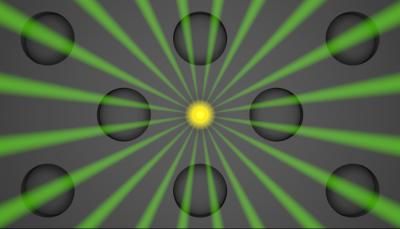Biacore's SPR Technology to Play Critical Role in La Jolla Pharmaceutical's Phase III Trial of Lupus Therapeutic
Use of Pharmacoproteomics Assay Presented at JP Morgan H & Q Healthcare Conference
Biacore International AB (SSE: BCOR; Nasdaq: BCOR) and La Jolla Pharmaceutical Company (Nasdaq: LJPC) announced today at the JP Morgan H & Q Healthcare Conference the first use of a surface plasmon resonance (SPR)-based pharmacoproteomics assay in clinical development. The assay will be used to identify the target patient population for the Phase III clinical evaluation of LJP 394, La Jolla Pharmaceutical’s therapeutic for the treatment of lupus kidney disease. It is believed that this approach will help increase the cost effectiveness of clinical development. Specifically, the assay will be used to determine which lupus patients with renal disease have high-affinity antibodies to LJP 394 and who therefore may benefit most from drug treatment.
"We are delighted that La Jolla Pharmaceutical has developed this novel assay using our SPR technology to support the clinical development of LJP 394," said Ulf Jonsson, President of Biacore. "This is the first time our technology has played such an important role in the clinical development of a novel therapeutic product. We hope that La Jolla’s approach will encourage other companies to develop pharmacoproteomic assays based on SPR technology."
"A pharmacoproteomics approach allows us to match the right patients with the right drug. We believe that the affinity assay will help us to identify patients that are most likely to respond to drug treatment. This discovery has provided us with a significant advantage in selecting patients in our Phase III trial," said Steven Engle, Chairman and CEO of La Jolla Pharmaceutical.
La Jolla Pharmaceutical (LJP) developed the blood test to measure the strength of binding between a patient's antibodies to double-stranded DNA and the Company's lupus drug candidate, LJP 394. In a Phase II/III trial, LJP 394-treated patients that had high-affinity antibodies to the drug had only one-third as many renal flares and less than one-half as many treatments with high dose corticosteroids and/or cyclophosphamide as placebo-treated patients. In that trial, 89% of patients had high-affinity antibodies to LJP 394.
This assay is based on Biacore’s unique surface plasmon resonance technology. It is able to generate real time binding measurements of biomolecules such as antibodies, without radioactive labelling. Studies conducted by LJP’s scientists showed that the SPR-based assay was able to measure the average binding affinity of polyclonal antibodies to LJP 394 in a repeatable manner.
At the scientific level, binding affinity drives the mechanism of action underlying LJP’s therapeutic approach. LJP 394 is designed to reduce the level of antibodies to double-stranded DNA that are believed to promote kidney disease, a primary cause of morbidity and mortality in lupus patients. When the drug binds to B cells that produce antibodies to double-stranded DNA, this action delivers a specific signal that arrests antibody production. Based on results from the Phase II/III trial for LJP 394, patients identified using Biacore’s technology should be more likely to respond to drug treatment.
Other news from the department science

Get the chemical industry in your inbox
By submitting this form you agree that LUMITOS AG will send you the newsletter(s) selected above by email. Your data will not be passed on to third parties. Your data will be stored and processed in accordance with our data protection regulations. LUMITOS may contact you by email for the purpose of advertising or market and opinion surveys. You can revoke your consent at any time without giving reasons to LUMITOS AG, Ernst-Augustin-Str. 2, 12489 Berlin, Germany or by e-mail at revoke@lumitos.com with effect for the future. In addition, each email contains a link to unsubscribe from the corresponding newsletter.



























































